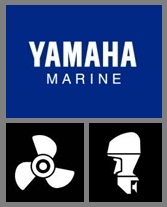
Here are the most common boater screw-ups that consistently cause a fistful of trouble — money trouble. It’s too bad, really, because a little forethought and preparation can make boating trouble-free and economical.
1. Not Using a Proper Outboard 2 Stroke or 4 Stroke Oil
What It Does: Most of ordinary outboard users are using 2 Stroke/4 Stroke motorcycle oil for their engines. However, ordinary motorcycle oil does not work efficiently in outboard engine. In terms of weight, rpm, area obstacles, etc. Motorcycle is meant for land transportation with 2 passengers only.It can run above 5,500 rpm.
However, outboard engine is meant for water transportation with more than 2 passengers and runs againts the seawaves. It runs to the maximum of 5,500rpm. Hence, ordinary motorcycle oil will not maintain your outboard engine condition and performance.
Result Neglect: You may have problem with engine crank components. The engine will not perform to its maximum power. It may cost you more by using motrocycle oil
Solution: Get a Yamalube Outboard Oil from your local dealer. Indeed, You will save alot when using Yamalube Outboard 2 Stroke Oil as it 1L oil:50L gasoline mixing, comparing to motorcyle oil wich is only 1:20
Penalty: Changing the engine crank components is expensive
2. Not Changing Gear-Case Lube
What It Does: Changing gear-case lube regularly — usually every 100 hours and again for winterization — maintains optimal lubricity and also gives a heads-up on developing problems, such as leaking seals or eroding gears.
Result Of Neglect: Moisture and condensation can erode lubricity and damage gears. Worse, you might not discover leaking seals in time to save the gear case from catastrophic failure.
Solution: You can use Yamaha Outboard Gear Oil which is produced exclusive for outboard engine.
Penalty: A new gear case can cost as much as $5,000.
3. Failing to Inspect or Change Fuel/Water Separators (You do have a 10-micron fuel/water separator between your tank and engine, right?)
What It Does: Fuel/water separators remove moisture from fuel before it gets to the engine. Outboard water separators have a “sight glass” in the bottom to allow inspection for water without draining them through the petcock on the bottom.
Solution: Water vapor collects in gas and travels to the engine, where, because it isn’t compressible and combustible like fuel vapor is, it can blow rings out of the pistons or cause piston rod and/or crankshaft failure.
Penalty: You’re usually looking at a new power head or engine block. It willl cost you alot.
4. Neglecting to Change Spark Plugs
What It Does: Spark plugs ignite the fuel air mixture in the fuel when they’re clean, properly gapped and serviceable.
Result Of Neglect: Spark-plug contacts (electrodes) erode over time — especially in outboards. As the gap widens with use, the spark plug fails to ignite the fuel-air mix, resulting in fouling. Fuel economy and performance suffer first, but if a bad plug remains, sooting can destroy the engine.
Solution: Use Genuine Yamaha Spark plugs which is developed for outboard engine. Changing them requires only a socket wrench and 10 minutes
Penalty: An outboard power head can cost $6,000 to $10,000.
5. Seldom service the engine
What It Does: Servicing is very important in maintaining your engine life. Just like us, human being, need to have medical check up regularly to stay healthy
Result Of Neglect: Engine may not run when you need it, or stall in the middle of the trip. Undamaged components may get broken as the result of the damaged components.
Solution: Send your engine for servicing to your local authorized Yamaha Marine Dealer regularly. Authorized Yamaha marine dealer will examined and replace the damaged parts with Genuine parts to keep your engine long lasting.
Penalty: You know the feeling when your engine stop running in the middle of the trip, right?? As it says, it costs you more to replace the parts if it is heavy damaged rather than doing regular service.

No comments:
Post a Comment